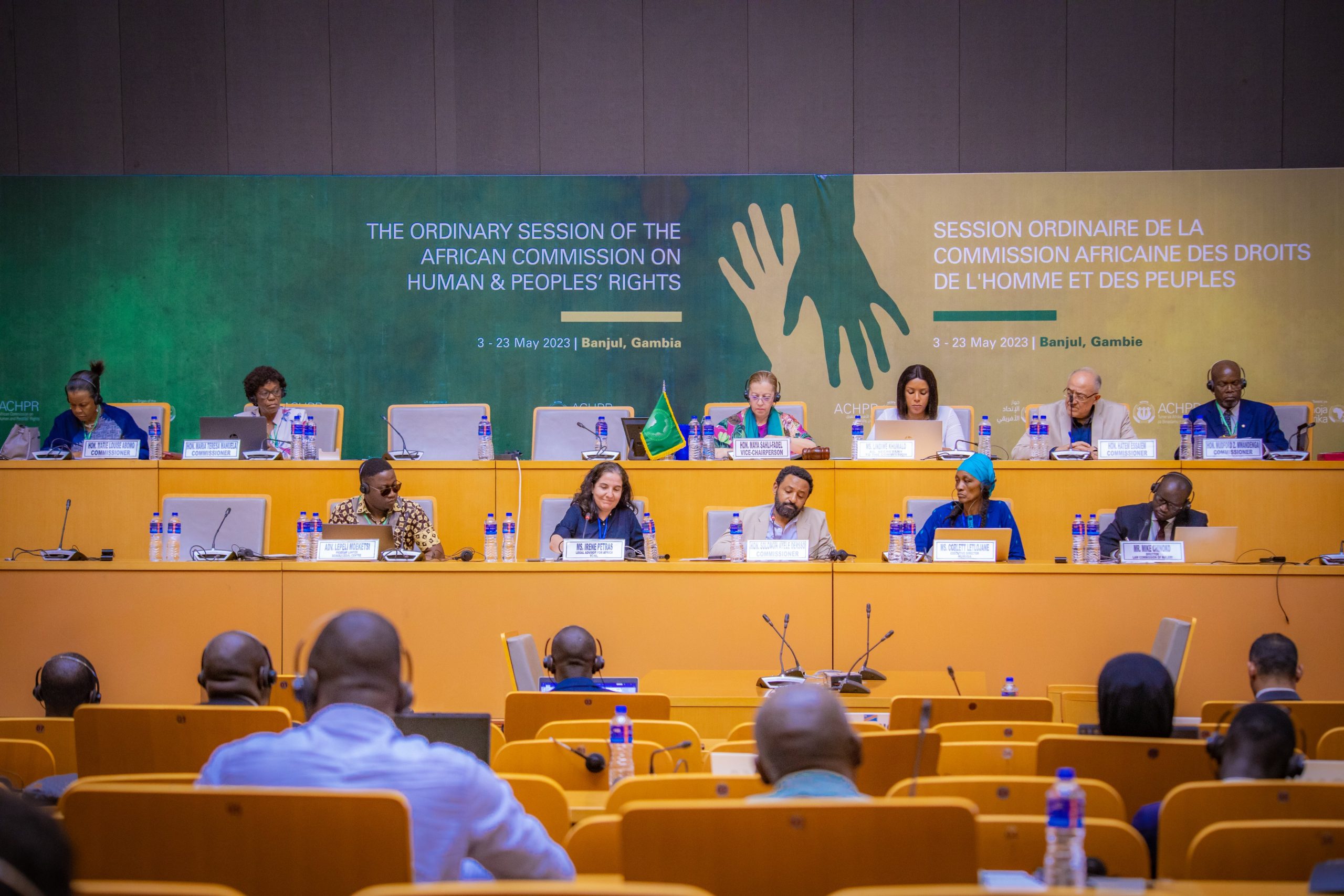The African Commission on Human and Peoples’ Rights (the Commission) held, on 8 May 2023, a panel to increase awareness of the Guidelines on Freedom of Association and Assembly in Africa, for its effective implementation. The purpose of the panel was to encourage States and relevant stakeholders to implement them effectively.
The Commission adopted the guidelines on the rights to freedom of peaceful assembly and association (FOAA) in May 2017 during its 60th ordinary session in Niamey, Niger. The Guidelines provide practical advice on how the rights to FoAA should be protected, based on international law and best practices.
Although the Guidelines provide a framework for improving the promotion and protection of FoAA, which facilitates the recognition and enforcement of other human rights, they are also “important to produce laws and policies complying with the African Charter, ” stated Irene Petras, Senior Legal Advisor – Africa at International Center for Not-for-Profit Law (ICNL). “Unfortunately, over the past five years, over 91% of legislations impacting FoAA have been restrictive,” she concluded.
In some States, such as in the Democratic Republic of Congo, Lesotho, Malawi and South Africa, frameworks have been used to limit the right to FoAA. It is therefore imperative for States to establish an enabling environment for the implementation of these legal instruments. “Human rights defenders who regularly face danger in antagonising environments have therefore a critical role to play to ensure that States are held accountable,” underlined Corlett Letlojane, Executive Director at the Human Rights Institute of South Africa.
Diane Hassane, Secretary-General of the National Human Rights Council of Côte d’Ivoire (a National Human Rights Institution – NHRI), spoke about the role of NHRIs in promoting the FoAA Guidelines in Africa for effective implementation. “The good interaction of NHRIs with the Commission allows not only to ensure the proper implementation of the FoAA Guidelines within the States but also the appropriation and promotion of these guidelines through dissemination within the different levels of society,” noted Hassane.
With regard to the implementation of the FoAA Guidelines from a State perspective, Mike Chinoko, Director of the Malawi Law Commission on Strategies for effective implementation of the FoAA Guidelines at the national level, stated that “the Constitution guarantees the right to freedom of association, the right to assembly and the right to demonstrate. In Malawi, the applicable regime is one of notification rather than authorisation. But there have been isolated cases where law enforcement officers have refused some civil society actors permission to demonstrate – fortunately, the courts have been very vigilant and have on many occasions upheld the constitutional right of assembly.”
Civil society organisations and human rights defenders operate in precarious environments that restrict FoAA in Africa. The implementation of the rights to freedom of association and assembly remains wishful thinking in Africa. It is imperative that States domesticate the FoAA Guidelines and implement them effectively and efficiently.
Watch it here
Download as PDF




